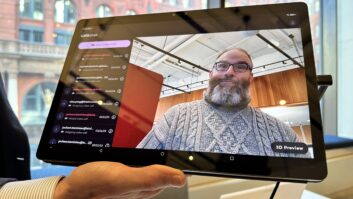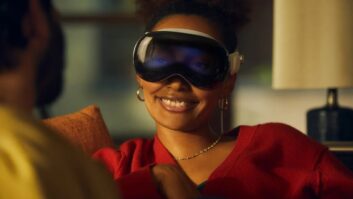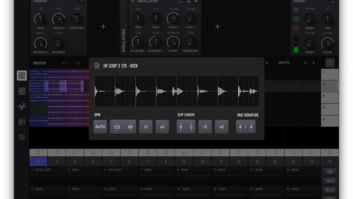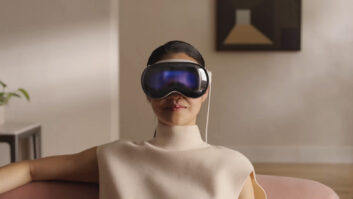As the dust settles after the blitzkrieg launch of Windows 95, retailers report mixed results: Sales of the product are slower than expected in some stores, but few question the long-term impact.
“I would pronounce it a slam-dunk win,” says Alan Bush, president of Computer City. “We should have a Windows 95 product introduction every week of the year.”
Bush says that Computer City’s “sales of Windows 95 are probably at plan, or slightly below plan. However, the sale of all the additional items that comprise the Windows 95 selling family — from keyboards to hard drives to Microsoft Office to Norton Utilities to more memory — have all exceeded our expectations.”
Not all end users are rushing to upgrade to Win 95, and their reluctance to embrace a new operating system has meant slower sales and slower upgrades in many stores.
For example, MegaMart in Omaha, Neb. opened a 500-square-foot Microsoft display in anticipation of the boom, but sales have been a bit below projection, says Dave Ortiz, entertainment merchandise manager.
“Has it performed up to the level we thought it would? No. But it’s still doing well,” he says.
More disappointing are hardware upgrades and other software attachment sales. “Add-on sales have been spotty at best,” says Ortiz. “We’ve seen minimal hardware upgrades. If anything has disappointed with the Windows 95 release, it would be add-ons like memory and hard drives, and we geared up pretty heavily for that.”
Best Buy senior VP of entertainment software marketing Jeff Abrams says that many consumers are staying on the sidelines, waiting to upgrade their computers before taking the plunge into Win 95. Nonetheless, “we had a lot of expectations, and it has gone well. This item built traffic for days.”
At Cincinnati-based Steinberg’s, computer buyer Nate Schneider says the impact on hardware sales so far has been “nothing to write home about.” Schneider estimates that sales on desktops increased 10% as a result of the launch, with an increase of about 15% on memory products. However, he expects “it to be a good Christmas.”
Steve Hassall, buyer at Pensauken, N.J.-based American Appliance, says the store didn’t push Win 95 heavily. “We sold our fair share of copies,” he says, “and then sales dropped off dramatically. It’s almost a non-issue. People are not screaming about problems with it, and they are not asking for it.”
“That initial freight train of enthusiasm has passed, and to the average consumer it doesn’t matter,” he adds. More important to his customers is whether their PCs will play games and run spreadsheets.
“The early adopter wave is over, now there’s the rest of the market, and they need to be swayed,” says Hassall. “But the general phenomenon of traffic has helped hardware sales. It increased our hardware business 60% to 70%, and we expect it to continue. It has helped the level of consumer awareness of computers, and it’s been good for the overall industry and for retailers who are in the position to capitalize on it.”
Seymour Merrin, president of Merrin Information Services, says it would be a mistake to judge Win 95 on its first few weeks of sales, because “it’s going to be a big boon for retailers for some time to come, with upgrades and a lot of traffic.”
“After the initial bubble, the actual start-up rate is going to be lower than a lot of people think,” he continues. “But it’s going to be steady. By the end of calendar year ’96, you’re going to have to have it. It’s a solid, long-term boost for retail. Any short-term negatives you might hear are sour grapes.”
Kathy Juve, senior VP of marketing and sales at MGV Memory, says it is difficult to gauge the impact of Win 95 on her company’s sales.
“We had counted on a 50% to 100% increase in sell-through with our large retail partners, and we are within that range,” she reports. “We think part of it is due to Windows 95, and part of it is due to the fourth-quarter push. We would have preferred to see 300% growth, but we didn’t see that.”
In the long term, however, Win 95 will inevitably boost memory sales, Juve believes. “We think it’s going to increase memory sales for at least a year as people start to transition over to the new operating system.”
In the new year, business could spark up, she predicts, because “there will be a second wave next spring as all of corporate America starts to upgrade.”
At Software City, in Englewood, N.J., Leslie Maltby, manager of sales promotions says business at the store was stronger in Win 95 CD-ROMs than it was in 3.5-inch disks. “That was one of the surprises,” she says.
The operating system continues to drive sales in memory, hard drives and 32-bit applications, Maltby says. “We were thinking memory would win out, but it looks like hard drives are what people are purchasing. We expect to pick up. People can get by now with what they’ve got. They’ll come back in a month or two to optimize.
Carl Snyder, computer sales manager at Team Electronics in Pierre, S.D., says that “out here in the boonies, not too many people have [upgraded to Windows 95] yet. Some of my customers haven’t even moved to Windows 3.1 yet.”
Snyder says he has encountered several problems installing older Windows programs into Win 95, and for that reason “made the recommendation that we not get into it heavily yet.”
“I’ve seen a bit of upgrading, enough to say that it’s probably going to be the trend,” he adds. “I’m expecting to see more of that as it gets closer to the holiday season and as more people get Windows 95.”–Additional reporting by Amy Gilroy[headline]New PC Retailer Is A Digital Playground
[text]It may look like more like the interior of a space ship than a retail store, but the room in the photo at right is part of a new computer retailing concept called Cyberplay, which recently opened in Orlando, Fla.
Described by its creators as “a playground for the imagination,” Cyberplay is half high-tech amusement park, half retail computer store. The store is split into four primary zones, two of which allow parents and their children to come in, and for approximately $9 per hour per play station, test-drive more than 100 CD-ROM software titles.
The Byte-Size Zone, designed for younger kids and their parents, is an area equipped with 10 Pentium PCs, where customers can learn how to operate the personal computer. Another room, called Random Access Area, is for older children and teens. Designed like a space ship’s engine room, users can surf the Cyberplay in-store network, while a DJ spins multimedia CD-ROMs and answers questions when they arise.
In a classroom area called the Database, which is equipped with 15 Pentium PCs, an in-store certified educator teaches parents about computers while their kids explore the Random Access Zone. The final area, called the Tradeport, is the actual retail portion of Cyberplay, housing hardware, software, books and accessories.
Cyberplay was created by Susan Ray, a former executive at Ben Franklin Retail Stores, and Steven Shamrock, a developer of custom homes. In March of last year the two quit their jobs and then enlisted the help of a Hollywood set designer, a franchise consultant, and Intel. They were able to convince mail-order computer supplier Micron to allow Cyberplay become the first retail store to sell its machines directly to the public.
Cyberplay officially opened In August in Mount Dora, Fla., just outside Orlando.
Ray and Shamrock say they intend to franchise the Cyberplay concept in cities throughout the U.S. and internationally.◊[headline]Can Win 95 Be A Winner?
Separating solid sell-through business from over-expectation may be the single largest problem in trying to gauge the success of the Windows 95 launch.
Published reports have speculated that Microsoft had sold 4 million copies through the end of September, but an off-the-record source at Microsoft says he believes the number is closer to 3 million. And some analysts, such as Alexander & Associates, have pegged the number closer to 2.6 million, with a forecast of 5 million units sold by the end of the year.
For any other software program, even the lowest of those numbers would be an unmitigated success. Unfortunately, Microsoft’s own hyping of the new operating system may be contributing to the perception that the launch has failed to meet expectations.
Another factor may be that retailers overbought on initial purchase orders, resulting in retail-channel overstock. According to research firm PC Data, weekly sales from Win 95 have fallen from $108 million during its first seven days of availability to $33 million for the week of September 14-20.
Still, analysts say that Microsoft is capable of hitting its target of selling 10-12 million copies of its new OS in the next 12 to 18 months. If so, the Redmond, Wash.-based company’s coffers could swell by as much as $1 billion.
A far more pressing problem for many dealers is a shortage of Windows 95-loaded PCs. Several suppliers shipped product late, preferring to offer consumers systems already loaded with the operating system. Dealers expect supplies to catch up by the end of the month. One big winner, however, was Packard Bell, an early Win 95 licensee, which has had adequate supplies of Win 95-loaded PCs since its launch.–J.K.W.
In Dollars
Microsoft 81.0%
Symantec 14.1%
Synchronys 2.6%
Touchstone 0.7%
Traveling Software 0.4%
Starfish 0.3%
Berkeley 0.3%
Mustang 0.2%
GT Interactive 0.2%
Shapeware 0.2%
In Dollars
Microsoft 58.5%
Symantec 30.7%
Synchronys 5.6%
Touchstone 1.6%
Traveling Software 1.0%
Starfish 0.7%
Berkeley 0.6%
Mustang 0.5%
GT Interactive 0.5%
Shapeware 0.5%
In Units
Microsoft 66.2%
Symantec 18.2%
Synchronys 5.8%
Spry 5.0%
Touchstone 1.7%
Berkeley 1.3%
GT Interactive 0.8%
Starfish 0.5%
Traveling Software 0.3%
Mustang 0.2%
In Units
Microsoft 40.3%
Symantec 32.1%
Synchronys 10.3%
Spry 8.9%
Touchstone 3.0%
Berkeley 2.3%
GT Interactive 1.4%
Starfish 0.9%
Traveling Software 0.5%
Mustang 0.4%
Cyberplay features four distinct primary zones, two of which are used for in-store product test-drives. In the Byte-Size Zone, kids and their parents can learn to use Pentium PCs.













